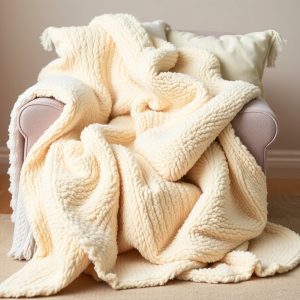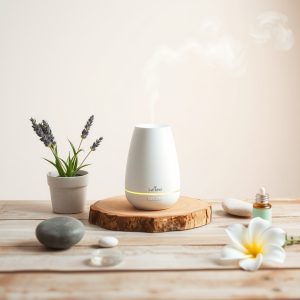
Feel-Better Magic: The Best Get-Well Gifts That Actually Help (and Delight!)

Being sick stinks—but the right gift can turn recovery into a cozy, comforting experience. Skip the predictable flowers and fruit baskets; these thoughtful picks deliver real relief, smiles, and a dose of “I’m here for you” energy.
Start with comfort essentials: a super-soft throw blanket, a soothing heat pack, or a luxe eye mask for extra rest. For the sniffles and sore throats, bundle honey sticks, herbal teas, and a funny mug that says, “I’m Not Sick—I’m Just Highly Contagious.”
Entertainment matters too—a lighthearted book, a puzzle, or a streaming subscription keeps boredom at bay. For long recoveries, a self-care kit with lotion, lip balm, and fuzzy socks feels like a warm hug.
Foodies will appreciate homemade soup delivered in a mason jar or gourmet crackers with fancy cheese. Add a handwritten note or a silly card to lift their spirits—because laughter really is the best medicine.
These gifts don’t just say “get well soon”—they make the journey back to health a little brighter, one cozy, thoughtful touch at a time.
Best Get Well Gift Ideas
A thoughtful gift can lift someone’s spirits. When a loved one feels unwell, a small gesture goes a long way. It shows you care. It brings comfort.
This guide explores 10 unique get-well gift ideas. Each one suits different tastes and needs. Real-life stories make them relatable.
These gifts aim to cheer up and support recovery. Let’s explore these heartfelt ideas!
Cozy Blanket for Warmth

A soft blanket wraps someone in comfort. It’s perfect for chilly days in bed. Blankets create a cozy, safe space. They help people relax while recovering.
Choose a lightweight but warm option. Fleece, cotton, or weighted blankets are great. Pick calming colors like soft blue, lavender, or cream.
Why it works: A blanket feels like a warm hug. It’s practical for napping, reading, or watching TV. It’s a gift that lasts beyond recovery.
Real-life example: Sarah’s friend, Emma, caught the flu. Sarah gifted her a plush fleece blanket with a subtle floral pattern. Emma loved wrapping herself in it during movie marathons.
She said it made her feel cared for. Even after recovering, Emma uses it every night.
Tips: Select a machine-washable blanket. Check for hypoallergenic materials if they have allergies. Add a monogram with their initials for a personal touch.
Consider a weighted blanket for extra calm, but ensure it’s not too heavy for their condition.
Extra ideas: Pair the blanket with a small pillow. Include a hot water bottle for added warmth. Look for eco-friendly materials to appeal to green-minded friends.
Soup Delivery Service for Nourishment

Soup soothes the body and soul. It’s easy to eat when someone feels weak. A soup delivery service sends hearty, ready-made meals. Options like chicken noodle, vegetable, or lentil are popular. Many services cater to vegan, gluten-free, or low-sodium diets.
Why it works: Cooking takes energy sick people don’t have. Soup is gentle on the stomach. It’s packed with nutrients to aid recovery.
Real-life example: Mark’s coworker, Tom, broke his leg in a skiing accident. Mark ordered a soup delivery box with eight flavors. Tom raved about the creamy tomato basil. His wife appreciated the break from cooking. The soups lasted a week, making recovery easier.
Tips: Choose a service with same-day or next-day delivery. Include a variety of flavors to keep meals exciting. Add a handwritten note with the package. Check for organic or locally sourced options for a thoughtful touch.
Extra ideas: Pair with a set of colorful spoons. Include a small loaf of crusty bread. Look for services that donate meals to charity for added meaning.
Inspirational Book for Distraction

A good book brightens tough days. It takes the mind off pain or boredom. Choose uplifting reads like short stories, humor, or motivational quotes. Avoid heavy or sad topics that might bring them down.
Why it works: Reading passes time during long recoveries. It sparks joy and hope. Books become companions when someone’s stuck in bed.
Real-life example: Lisa’s aunt, Maria, had knee surgery. Lisa gave her a collection of funny essays by a popular comedian. Maria read a chapter each evening. She laughed out loud, which lifted her mood. She even shared stories with her nurses, spreading smiles.
Tips: Pick books with large print for easy reading. Audiobooks work if holding a book is hard. Include a bookmark with an encouraging message. Consider e-books for instant access.
Extra ideas: Add a small reading light. Pair with a cozy bookstand for hands-free reading. Suggest a feel-good title like Chicken Soup for the Soul.
Aromatherapy Diffuser for Calm

A diffuser spreads soothing scents. Lavender, eucalyptus, or chamomile helps with relaxation and breathing. It adds moisture to dry air, easing sore throats or stuffy noses. Compact designs fit on any bedside table.
Why it works: Scents boost mood and calm nerves. Diffusers create a spa-like vibe. They’re safe and easy to use, even for beginners.
Real-life example: John’s sister, Mia, had a bad cold. He gifted her a sleek diffuser with lavender and peppermint oils. Mia used it nightly. The calming scent helped her sleep better. She said her room felt like a retreat.
Tips: Choose a diffuser with a timer or auto-shutoff. Include a starter set of essential oils. Ensure it’s easy to clean. Check for quiet models to avoid disturbing sleep.
Extra ideas: Add a guide to essential oil benefits. Include a small scented candle as a backup. Look for diffusers with soft LED lights for ambiance.
Personalized Care Package for Thoughtfulness

A care package is a box of curated goodies. Fill it with snacks, tissues, lip balm, cozy socks, or a puzzle book. Tailor it to their personality. It’s like sending love in a box.
Why it works: Each item feels chosen with care. It’s versatile for any situation. It shows effort and thoughtfulness.
Real-life example: Anna’s friend, Liam, was in the hospital after a car accident. She packed a care package with his favorite pretzels, a soft eye mask, a funny card, and a mini journal. Liam grinned when he opened it. The eye mask became his sleep savior.
Tips: Use a sturdy, decorative box. Add a handwritten note with warm wishes. Include non-perishable snacks for longer hospital stays. Avoid items with strong scents if they’re sensitive.
Extra ideas: Add a small stuffed animal. Include a travel-sized hand sanitizer. Toss in a deck of cards for light entertainment.
Streaming Service Subscription for Entertainment

Movies and shows keep boredom at bay. A gift card for Netflix, Hulu, or Disney+ offers endless fun. Comedies or lighthearted series work best for lifting spirits. It’s a gift that keeps giving for weeks.
Why it works: Recovery can feel isolating. Streaming distracts and entertains. It’s perfect for long hospital or home stays.
Real-life example: David’s cousin, Sophie, faced a month-long recovery. He gifted her a three-month Hulu subscription. Sophie binged a comedy series about friendship. She said it made hospital nights feel less lonely.
Tips: Check if they already have the service. Choose flexible gift card amounts. Suggest cheerful shows like The Great British Bake Off. Ensure they have a device to stream on.
Extra ideas: Pair with a small tablet stand. Include a list of feel-good movie recommendations. Add a cozy blanket for movie nights.
Comfortable Pajamas for Relaxation

Soft pajamas make resting feel luxurious. They’re ideal for lounging at home or in the hospital. Cotton or bamboo fabrics are breathable. Loose fits ensure comfort during long days.
Why it works: Pajamas feel cozy and practical. They boost confidence when someone feels unwell. Quality ones last for years.
Real-life example: Rachel’s mom had a high fever. Rachel bought her a set of cotton pajamas in soft gray. Her mom wore them daily, saying they felt gentle on her skin. She still wears them for lazy weekends.
Tips: Choose slightly larger sizes for comfort. Avoid buttons or zippers that might irritate. Pick neutral colors or fun patterns they love. Check for easy-care fabrics.
Extra ideas: Add a pair of soft slippers. Include a sleep mask for better rest. Look for organic cotton for sensitive skin.
Handwritten Letter or Card for Connection

A heartfelt letter or card carries deep meaning. Write kind words to lift their spirits. Share a funny memory or words of encouragement. It’s simple yet powerful.
Why it works: Personal words show love. They create an emotional bond. People cherish letters and reread them often.
Real-life example: Mike’s friend, Clara, had pneumonia. He wrote a two-page letter about their summer camp adventures. Clara teared up with joy. She kept the letter by her bed, reading it when she felt low.
Tips: Use quality stationery for a special feel. Keep the tone upbeat and hopeful. Add a small doodle or sticker for fun. Write legibly for easy reading.
Extra ideas: Include a photo of a shared moment. Pair with a small frame for display. Add a pack of blank cards for them to write to others.
Indoor Plant for Healing Vibes

A small plant brightens any space. It symbolizes growth and hope. Easy-care plants like succulents, pothos, or peace lilies are perfect. They need minimal effort to thrive.
Why it works: Plants add life to dull rooms. They improve air quality. Tending to them gives a small sense of purpose.
Real-life example: Emily’s brother, Jack, recovered from appendix surgery. She gave him a tiny cactus in a colorful pot. Jack named it “Spike” and watered it weekly. It now sits proudly on his desk.
Tips: Choose low-maintenance plants. Include a decorative pot for charm. Add a care card with simple instructions. Avoid plants that need frequent watering.
Extra ideas: Pair with a small watering can. Include a plant care book for beginners. Pick a plant with a fun name to make them smile.
Puzzle or Activity Book for Engagement

A puzzle book keeps the mind sharp. Crosswords, sudoku, word searches, or coloring books are great. They’re fun, low-energy activities for bedrest.
Why it works: Puzzles fight boredom. They offer a sense of accomplishment. They’re ideal for quiet recovery days.
Real-life example: Sam’s dad was bedridden after a fall. Sam gave him a sudoku book with easy puzzles. His dad solved one daily, feeling proud each time. He even taught Sam some tricks, bonding over puzzles.
Tips: Choose books with large print for easy reading. Include pencils or crayons. Pick puzzles that match their skill level. Avoid overly complex books that might frustrate.
Extra ideas: Add a small pencil sharpener. Include a coloring book for variety. Pair with a lap desk for comfort.
FAQs
What makes a great get-well gift?
A great gift is thoughtful and practical. It comforts or entertains. Choose something that matches their personality and needs.
Can I send gifts to a hospital?
Yes, but call the hospital first. Some ban flowers or food. Cards, books, or small items like blankets are usually fine.
How do I pick a gift for someone I barely know?
Stick to universal gifts. Blankets, plants, or care packages suit most people. Keep it simple and heartfelt.
Are homemade gifts better than bought ones?
Both work well. Homemade gifts feel personal and unique. Store-bought gifts are polished and quick. Choose based on your time and skills.
How can I make a gift feel special?
Add a personal touch. Write a note. Pick their favorite color. Include an item tied to a memory you share.
Conclusion
A get-well gift can brighten someone’s day. It shows you care. These 10 ideas offer variety for every personality. From cozy blankets to engaging puzzle books, each gift brings comfort.
Real-life stories show their impact. Think about what your loved one enjoys. Add a personal note or touch to make it unique. A small gesture can create lasting memories.
Pick a gift today and spread warmth to someone who needs it.
